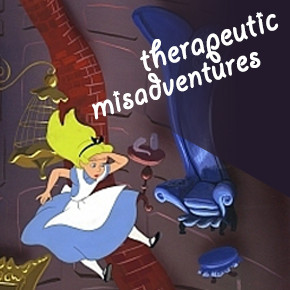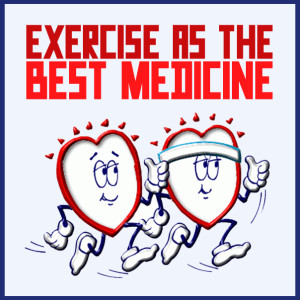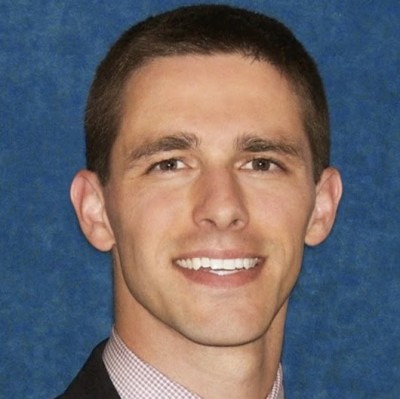 Kathryn Rachel Morrison (1 Posts)
Kathryn Rachel Morrison (1 Posts)Contributing Writer Emeritus
Wright State University Boonshoft School of Medicine
Katie is a Class of 2016 medical student at Wright State University Boonshoft School of Medicine in Dayton, OH. She is originally from Columbus, OH and attended college at Wake Forest University in Winston-Salem, NC. She is engaged to a 4th year HPSP student, who has matched to Walter Reed Military Medical Center in Bethesda, MD in Internal Medicine. Katie hopes to join him in the D.C. area the following year.
As medical students, we have the unique experience of jumping from service to service or specialty to specialty. The good students will embrace the opportunity to be constantly challenged to evolve in their thinking and their doing. However, often times, the experience of one week here, two weeks there, four weeks somewhere else can be a bit awkward.
The subject of mental health is especially close to my heart; my struggle with depression and anxiety has had an immense impact on my experience during medical school. Yet I never realized how utterly commonplace this is until reading a recent piece on Medscape, “Med Student Suicide, Depression: National Response Needed.” I had no idea, none at all, how many others there were struggling just like me. What I do know is, had there been a screening method in place and more than a half-ditch effort to de-stigmatize these problems, my medical school experience could have been vastly different.
The nightmare begins like any other. At first, everything seems familiar. But slowly, you realize something is not right — something is out of place. Outside the window, clouds black as night gather, lurching forward like a hurricane. The thunder is so intense you feel the electricity pulsate through your chest. An impending doom consumes your emotions. The room seems to press in on you like some scene from “Alice in Wonderland.” Then the words creep in.
In addition to its beneficial effects in patients with mood disorders, exercise has been found to be an excellent anxiety reliever. 30 million Americans suffer from severe anxiety that impairs daily functioning. This article will discuss anxiety disorders and research regarding the role of exercise in their treatment.
For me, hepatitis B booster shots feel pretty much as pleasant as being sucker punched in the arm. You can imagine that it didn’t inspire much elation when I scrolled through my calendar to see, spelled out in big red letters, a reminder for “Hep B #3.” Now, as I reflect, this reminder feels like a victory of sorts.
How can doctors-in-training create balance in their lives and not let school define them? Jazmin, a fourth-year medical student in Galveston, Texas who intends to begin pediatric residency next year, discusses how important it was for her to not solely identify as a student during the four years of medical school. She also espouses the benefits of creating a family-like community at school.
As a medical student, there is nothing more precious to us than time and brain space. More than once have I left a lecture thinking, “That was a complete waste of my time.” With the volume of information thrown at us, it is paramount to focus on the high yield. Every kind of resource, from Pathoma to First Aid, focuses on the high-yield information that will show up on Step 1. Sometimes, I don’t even think that far.
The barrage of words that greeted me as I was unceremoniously dropped off with my first medical team during my third-year internal medicine rotation twisted my stomach into a knot. Standing awkwardly with the team on rounds, the harsh fluorescent lighting overhead, I came to realization that I was much like Dorothy in the Wizard of Oz…
There is a well studied phenomenon in medical education: student physicians begin to burn out out early. According to several multi-center studies, burnout occurs in roughly 50 percent of students before they even earn their medical degrees. Personally, this manifests in the fading width of the bright smiles we adorned during our white coat ceremonies while our teeth begin to change to a color that only coffee-executives could be proud of. In short, we begin to care less.
What I have learned along the way is that many people find policy boring. Maybe they associate it with clips of C-SPAN they watched in middle school civics class, or perhaps it evokes the frustration felt when yet another health policy dies a silent death on a Congressional floor, but whatever the reason, policy is ascribed as a responsibility solely for politicians. This presents a massive conundrum because our interests as future clinicians cannot be represented if we are not the ones speaking to policymakers.
At 8 a.m. every morning of the work week, I show up to class and make every bit of a dramatic entrance — slapping high fives to people in the front row, cracking a joke at He-Man’s (the class ‘buff guy’) expense, taking a moment to survey the classroom for an empty seat (next to people I haven’t sat with yet), throwing long distance secret handshakes to anyone from my lab table that’s paying attention … and smiling as big as I can stand it. And though this behavior is admittedly odd and seemingly manic, it is actually a completely honest expression of everything that my smile represents. Some of my classmates have noticed and asked me about it. At 2 p.m. on October 10, one of Dr. Rudy’s former patients reminds me of the substantial and universally relevant answer to why I am the way I am.
As medical students, we are handed many books and are told to read them — and memorize them, usually. In addition to the technical, fact-filled and scientific books we are given, medical students would probably benefit from being handed a self-help book or two. It is interesting that medical students, a group intent on making our lives about caring for others, so often fail to care for ourselves. The difficulty with medical students is that …
 Brent Schnipke (18 Posts)
Brent Schnipke (18 Posts)Medical Student Editor, Writer-in-Training and Columnist Emeritus
Boonshoft School of Medicine at Wright State University
Brent Schnipke is a third year medical student at Wright State University Boonshoft School of Medicine in Dayton, OH. He is a 2014 graduate of Mount Vernon Nazarene University with a degree in Biology. His professional interests include writing, medical humanities, and higher education. When he's not studying, he can be found reading at a local coffee shop, training for his next race, or planning an adventure with his wife. Brent is also active on social media and can be reached on Twitter and Instagram @brentschnipke.
Prints, Pages, and Pagers
Prints, Pages, and Pagers aims to look closely at the lives of medical students and doctors, real or fiction, whose lives and experiences are told in novels, short stories, poetry, or any kind of writing. These book reviews are an opportunity for medical students to learn from the many fascinating stories produced by the field of medicine, and maybe to read something other than a textbook.










